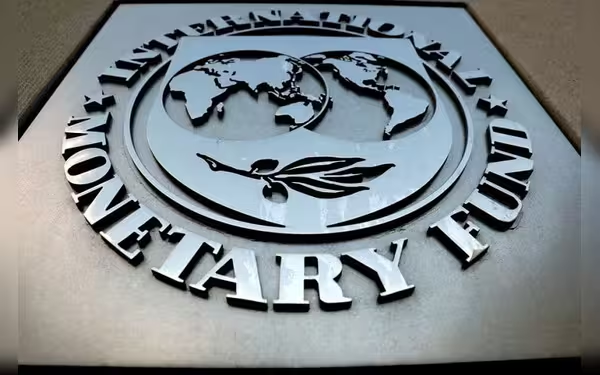Thursday, July 4, 2024 05:49 PM
IMF discusses economic challenges with Pakistan amid subsidy concerns
- Ongoing talks with IMF raise questions about Pakistan's approach to financial support
- IMF recommendations focus on tax reforms and revenue administration
- Subsidies to AJK consumers complicate Pakistan's negotiations with IMF
 Image Credits: tribune_pk
Image Credits: tribune_pkPakistan engages in discussions with the IMF to address economic challenges, focusing on tax reforms and revenue administration. Subsidies to AJK consumers complicate negotiations with the IMF.
Pakistan is currently engaged in discussions with the International Monetary Fund (IMF) to address economic challenges and potential financial support. The ongoing talks, described as 'further engagement with the fund,' have raised questions about the country's approach to securing assistance from the IMF.
The recent visit of an IMF mission led by Nathan Porter coincided with unrest in Azad Jammu and Kashmir (AJK), leading to the approval of a Rs23 billion subsidy by the Prime Minister. This unexpected move has sparked concerns about Pakistan's ability to navigate public pressure and economic reforms in the context of IMF negotiations.
Key issues discussed between the IMF and Pakistani authorities include tax revenue shortfalls, federal-provincial tax imbalances, and political challenges. The nature and scope of a potential IMF program, including its duration and size, are still under negotiation, with Pakistan showing interest in a three-year program.
The IMF's recent assessment highlighted political uncertainty and social tensions as obstacles to economic stability. While macroeconomic indicators have shown improvement, Pakistan is urged to address tax collection gaps and streamline taxation at both federal and provincial levels.
Recommendations from the IMF include expanding the National Tax Council's role to harmonize tax rates for agricultural income and property tax, areas currently under provincial jurisdiction. Provinces are also encouraged to enhance tax collection efforts to improve revenue administration.
However, the recent decision to provide subsidies to AJK consumers for essential goods like wheat and electricity has raised concerns within the IMF. These subsidies, aimed at addressing recent unrest in the region, may complicate Pakistan's negotiations with the IMF on economic reforms and stabilization measures.
Pakistan's engagement with the IMF reflects the country's efforts to address economic challenges and seek financial support. As discussions continue, the government faces the dual challenge of managing public pressure and implementing necessary reforms to stabilize the economy. The outcome of these negotiations will have significant implications for Pakistan's economic future and its relationship with international financial institutions.













